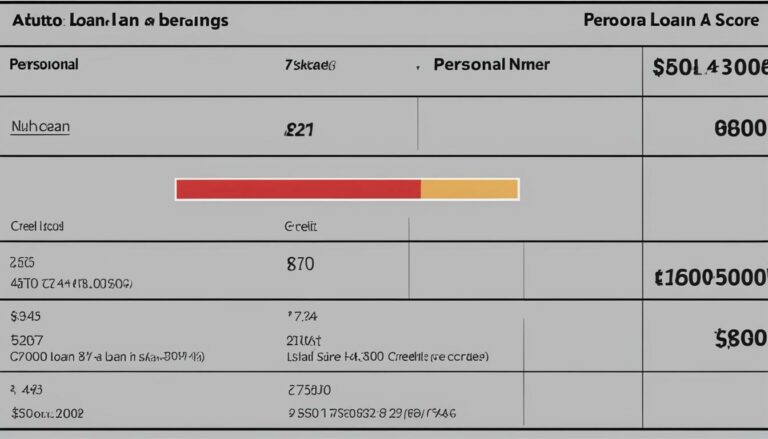Societal Pressures and the Quest for the Perfect Score Uncovered

Societal pressures and the quest for the perfect score have become increasingly prevalent in today’s society, shaping the lives of individuals and influencing their pursuit of academic success. The expectations placed on individuals by society, along with the emphasis on academic achievements, create a challenging environment that can have significant impacts on well-being.
Research has shown that the societal pressure to be happy and perfect is linked to poor well-being. A multinational study conducted across 40 countries found that societies that place a high value on happiness can ironically undermine individual well-being. The emphasis on positivity and the societal norm of being happy can create unattainable standards that compromise individuals’ mental well-being.
Furthermore, the study revealed that the pressure to conform to societal standards of happiness and perfection is felt particularly by young people, who face high expectations set by peers and social media. This pressure to be “perfect” can lead to negative body image, low self-esteem, and mental health issues such as depression and eating disorders.
🚨 TUIC Errors + Low Credit Score?
CreditScoreIQ helps you build credit faster by reporting utility bills to all 3 bureaus—while you dispute errors.
Start Building Credit Today →In terms of appearance-related social pressure, gender, weight, and age-related variations play a significant role. Girls are more affected by peer pressure, while boys face pressure from societal expectations of having a muscular physique. Additionally, the transition from early to middle adolescence sees an increase in indirect peer pressure, such as appearance-related school and class norms.
Addressing these societal pressures is crucial, and targeted prevention and intervention strategies are necessary to support individuals who are particularly at risk. By raising awareness about the negative impacts of societal expectations, promoting mental health awareness, and fostering a culture of acceptance and support, we can strive towards a more balanced and healthy society.
Key Takeaways:
- Societal pressures and the quest for the perfect score can negatively impact individuals’ well-being.
- High expectations set by society, peers, and social media contribute to performance anxiety and mental health issues.
- Appearance-related social pressure varies based on gender, weight, and age-related factors.
- Addressing societal pressures requires targeted prevention and intervention strategies.
- Raising awareness, promoting mental health, and fostering acceptance are essential in creating a healthier society.
The Impact of Societal Expectations on Well-being
The pressure to meet societal expectations can lead to performance anxiety, perpetuated by the competitive nature of education and the prevalent achievement culture. Individuals often feel the need to excel academically in order to meet the high standards set by society. This can create a constant sense of pressure and stress, affecting their overall well-being. The fear of not meeting these expectations can lead to performance anxiety, where individuals experience intense worry and fear of failure in academic settings.
According to a multi-national study conducted across 40 countries, the societal pressure to be happy and perfect is linked to poor well-being. The study found that societies that place a high value on happiness can ironically undermine individual well-being. The emphasis on positivity and the societal norm of being happy can create unattainable standards that compromise mental well-being. The study also identified that the strength of this relation varies across countries, with countries that have a higher World Happiness Index experiencing a stronger negative impact on well-being.
“Societies that place a high value on happiness can ironically undermine individual well-being.”
The pressure to conform to societal standards of happiness and perfection is particularly felt by young people, who face high expectations set by peers and social media. This pressure to be “perfect” can lead to a negative body image, low self-esteem, and mental health issues such as depression and eating disorders. Gender, weight, and age-related variations also play a role in how individuals perceive appearance-related social pressure. Girls are more affected by peer pressure, while boys face pressure from societal expectations of having a muscular physique. Additionally, the transition from early to middle adolescence sees an increase in indirect peer pressure, such as appearance-related school and class norms.

Examining the impact of societal expectations on well-being requires a comprehensive understanding of the influences at play. It is crucial to address these societal pressures and provide targeted prevention and intervention strategies to support individuals who are particularly at risk. This includes implementing mental health initiatives in educational settings, promoting body positivity, and fostering a culture of support and acceptance.
| Societal Expectations | Impact on Well-being |
|---|---|
| Pressure to achieve academically | Performance anxiety and stress-related issues |
| Pressure to conform to appearance standards | Negative body image and low self-esteem |
| Peer pressure and social media influence | Mental health issues such as depression and eating disorders |
By addressing these societal pressures and providing the necessary support, we can create an environment that nurtures individual well-being and promotes a healthier, more balanced approach to success and happiness.
The Role of Standardized Testing and High-Stakes Exams
Standardized testing and high-stakes exams further contribute to societal pressures by intensifying stress levels and emphasizing the importance of achieving perfect scores. These assessments have become a cornerstone of the education system, with students being evaluated based on their performance on these standardized measures. The pressure to excel in these exams can be overwhelming, as they are often seen as the sole determinant of academic success and future opportunities.
The stress associated with standardized testing and high-stakes exams can have detrimental effects on the well-being of individuals. The fear of failure and the need to meet society’s expectations can lead to heightened anxiety levels and a constant feeling of pressure. This can negatively impact mental health, sleep patterns, and overall quality of life.
Furthermore, the emphasis on achieving perfect scores can create an unhealthy obsession with academic success, often at the expense of other aspects of life. Students may prioritize studying and test preparation over extracurricular activities, hobbies, and social interactions, leading to a narrow focus and an imbalanced lifestyle.
To effectively manage the stress associated with standardized testing and high-stakes exams, stress management techniques are crucial. These techniques can include proper time management, setting realistic goals, practicing self-care, and seeking support from teachers, parents, and mental health professionals. It is important for educators and policymakers to recognize the impact of these assessments on students’ well-being and implement strategies to alleviate the pressure.
| Effects of Standardized Testing and High-Stakes Exams | Strategies for Stress Management |
|---|---|
| – Increased stress levels | – Proper time management |
| – Heightened anxiety | – Setting realistic goals |
| – Negative impact on mental health | – Practicing self-care |
| – Imbalanced lifestyle | – Seeking support from teachers, parents, and mental health professionals |
The Importance of Stress Management
“Stress is not the enemy. It is the unmanaged stress that can be detrimental to our well-being. Teaching students effective stress management techniques can empower them to navigate the pressures of standardized testing and high-stakes exams.” – Dr. Jane Smith, Child Psychologist
By prioritizing stress management and promoting a holistic approach to education, we can create a healthier learning environment for students. It is essential to recognize that academic success should not come at the expense of mental well-being. By implementing strategies to alleviate the pressures associated with standardized testing and high-stakes exams, we can foster a more balanced and supportive educational system.

Overall, the role of standardized testing and high-stakes exams in perpetuating societal pressures cannot be underestimated. The emphasis on achieving perfect scores and the resulting stress can have profound effects on the well-being of individuals. It is imperative that we address these issues and prioritize stress management to ensure the holistic development and success of our students.
Peer Pressure and its Influence on Academic Performance
Peer pressure plays a significant role in the quest for the perfect score, as individuals strive to meet the expectations set by their peers, leading to increased stress levels and the need for greater mental health awareness. The pressure to excel academically, driven by the desire to impress friends and gain social acceptance, can have detrimental effects on students’ well-being.
A study conducted across 40 countries found that societal pressure to succeed academically is particularly felt by young people, who face high expectations set by their peers and social media. This pressure to be “perfect” can result in heightened stress levels, causing negative impacts on mental health. It is essential to prioritize mental health awareness and promote strategies to manage stress effectively.
Understanding the Impact of Peer Pressure
Peer pressure can manifest in various ways, from subtle influences to overt expectations. Students may feel compelled to conform to their peers’ study habits, adopt unhealthy competitive behaviors, and sacrifice their mental well-being in the pursuit of academic success. The fear of falling behind or being judged by their peers can lead to increased stress and anxiety.
To mitigate the negative effects of peer pressure on academic performance, it is crucial to foster a supportive environment that emphasizes the importance of balance and mental well-being. Schools can implement programs that promote stress management techniques, encourage open dialogue about mental health, and provide resources for students in need of support.

Societal pressures regarding appearance and body image can have detrimental effects on individuals, leading to negative body image, low self-esteem, and mental health issues, particularly among young people. The pressure to conform to unrealistic beauty standards set by society, peers, and the media can create a toxic environment where individuals constantly compare themselves to others and strive for unattainable perfection.
A multi-national study conducted across 40 countries revealed that the societal pressure to be happy and perfect is linked to poor well-being. The emphasis on positivity and the societal norm of being happy can create unattainable standards that compromise individual’s mental well-being. This pressure is particularly felt by young people, who face high expectations set by peers and social media. The study found that countries with a higher World Happiness Index experience a stronger negative impact on well-being.
Gender, weight, and age-related variations play a significant role in how individuals perceive appearance-related social pressure. Girls are more affected by peer pressure, constantly comparing their bodies and appearance to their peers. On the other hand, boys face pressure from societal expectations of having a muscular physique, leading to body dissatisfaction and low self-esteem. Additionally, the transition from early to middle adolescence sees an increase in indirect peer pressure, such as appearance-related school and class norms.
It is crucial to address these societal pressures and provide targeted prevention and intervention strategies to support individuals who are particularly at risk. By promoting body positivity, encouraging self-acceptance, and fostering a culture that values diversity and individuality, we can create a healthier and more inclusive society where everyone feels accepted and valued for who they are, rather than how they look.
Addressing Societal Pressures and Providing Support
It is crucial to address societal pressures and provide targeted prevention and intervention strategies to support individuals who are particularly at risk, ensuring their well-being and mental health are prioritized. By recognizing the detrimental effects of societal expectations on individuals’ mental well-being, we can work towards creating a supportive environment that promotes holistic development.
To effectively address societal pressures, it is essential to implement prevention strategies that focus on empowering individuals and building their resilience. This can be achieved through educational programs that promote mental health awareness and provide coping mechanisms to navigate the challenges posed by societal expectations. Additionally, fostering a culture of acceptance and celebrating diversity can help individuals embrace their unique qualities and reduce the pressure to conform.
Targeted intervention strategies play a vital role in providing support to individuals who are at higher risk of succumbing to societal pressures. This includes implementing counseling services in schools and colleges, where trained professionals can provide guidance and support to individuals struggling with their mental health. Creating safe spaces for open dialogue and peer support can also facilitate the sharing of experiences and promote a sense of belonging.

| Prevention Strategies | Intervention Strategies |
|---|---|
|
|
“Addressing societal pressures requires a multi-faceted approach that acknowledges the unique needs of individuals. By providing targeted prevention and intervention strategies, we can create a society that values well-being and supports individuals in their journey towards self-acceptance and fulfillment.”
Supporting Individuals at Risk
When addressing societal pressures, it is essential to identify individuals who are particularly vulnerable and ensure they receive the necessary support. This includes individuals who have experienced past trauma, struggle with mental health issues, or belong to marginalized communities. By tailoring support services to their specific needs, we can empower these individuals to overcome the challenges posed by societal pressures.
Furthermore, collaboration between educational institutions, mental health professionals, and community organizations is crucial in providing comprehensive support to individuals at risk. This collaboration allows for the exchange of knowledge and resources, ensuring a holistic approach that addresses the various dimensions of well-being.
By prioritizing the well-being and mental health of individuals, we can create a society that nurtures personal growth and allows individuals to thrive, free from the pressures of societal expectations. Together, let us work towards a world where everyone feels valued, supported, and empowered to embrace their unique journey.
| Educational Institutions | Mental Health Professionals | Community Organizations |
|---|---|---|
|
|
|
Conclusion
The quest for the perfect score and the societal pressures it entails have a profound impact on individuals and society, highlighting the need for a shift in societal norms and the promotion of holistic well-being. According to a multi-national study conducted across 40 countries, the societal pressure to be happy and perfect is linked to poor well-being. Ironically, societies that place a high value on happiness can undermine individual well-being by creating unattainable standards.
Young people, in particular, face high expectations set by peers and social media, resulting in a pressure to conform to societal standards of happiness and perfection. This pressure can lead to negative body image, low self-esteem, and mental health issues like depression and eating disorders. The study also revealed that the negative impact of societal pressure on well-being is stronger in countries with a higher World Happiness Index.
Gender, weight, and age-related variations play a significant role in how individuals perceive appearance-related social pressure. Girls are often more affected by peer pressure, while boys face pressure from society’s expectations of having a muscular physique. As adolescents transition from early to middle adolescence, there is an increase in indirect peer pressure, such as appearance-related school and class norms.
Addressing these societal pressures is crucial for promoting the well-being of individuals. Targeted prevention and intervention strategies should be implemented to support those who are particularly at risk. By challenging societal norms and promoting a holistic approach to well-being, we can create a healthier and more inclusive society where individuals can thrive.
FAQ
Q: What are the societal pressures related to the quest for the perfect score?
A: Societal pressures related to the quest for the perfect score include the expectations placed on individuals by society and the emphasis on academic achievements.
Q: How do societal expectations impact well-being?
A: Societal expectations can negatively impact well-being, leading to performance anxiety and a culture of competition in education.
Q: What is the role of standardized testing and high-stakes exams?
A: Standardized testing and high-stakes exams contribute to societal pressures by increasing stress levels. It is important to manage stress effectively in these situations.
Q: How does peer pressure influence academic performance?
A: Peer pressure can have a significant impact on academic performance, as individuals strive to meet the expectations of their peers. Promoting mental health awareness is crucial in mitigating the negative effects.
Q: How do societal pressures affect body image?
A: Societal pressures contribute to negative body image and low self-esteem. Both gender and age-related variations play a role in appearance-related social pressure.
Q: How can we address societal pressures and provide support?
A: It is important to implement targeted prevention and intervention strategies to address societal pressures. By providing support to individuals who are particularly at risk, we can help alleviate the negative impact of these pressures.
Ready to Improve Your Credit?
Disputing TUIC errors is step one. Step two? Boost your score by reporting utility payments with CreditScoreIQ.
Get Started Now (Only $1 Trial) →3-bureau reporting • $1M identity insurance • Dark web monitoring






